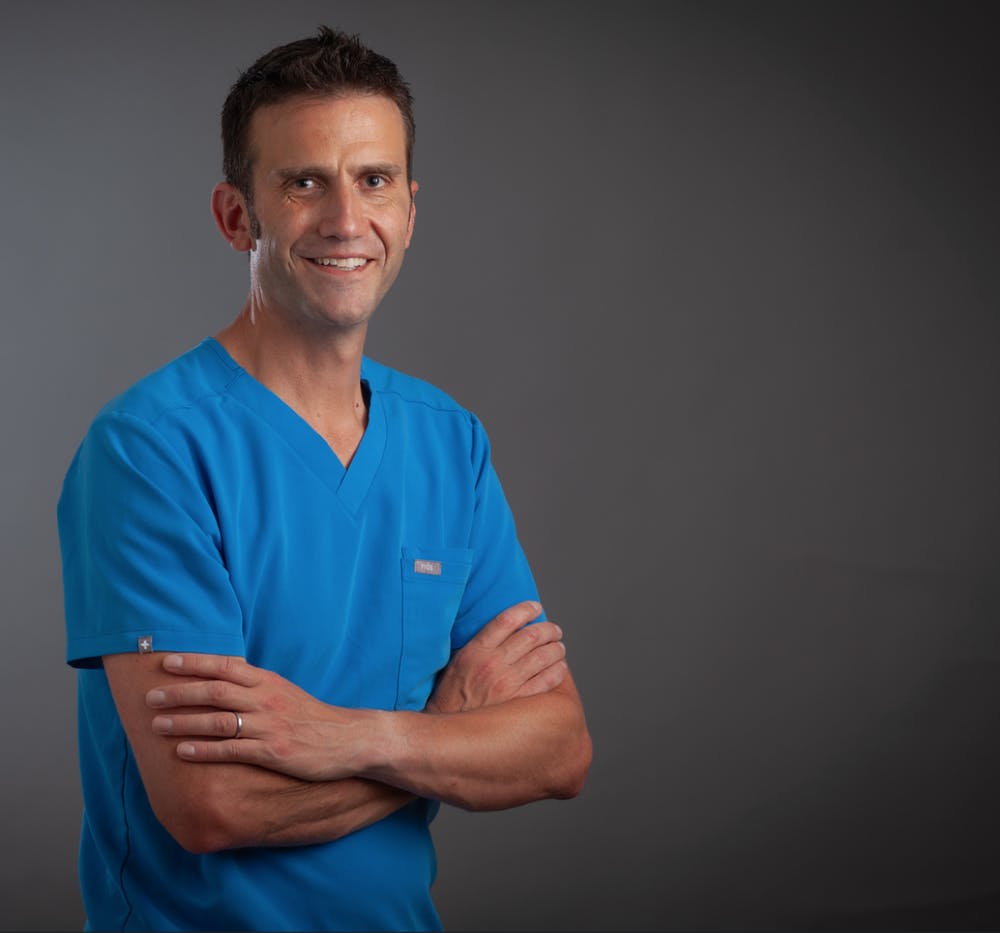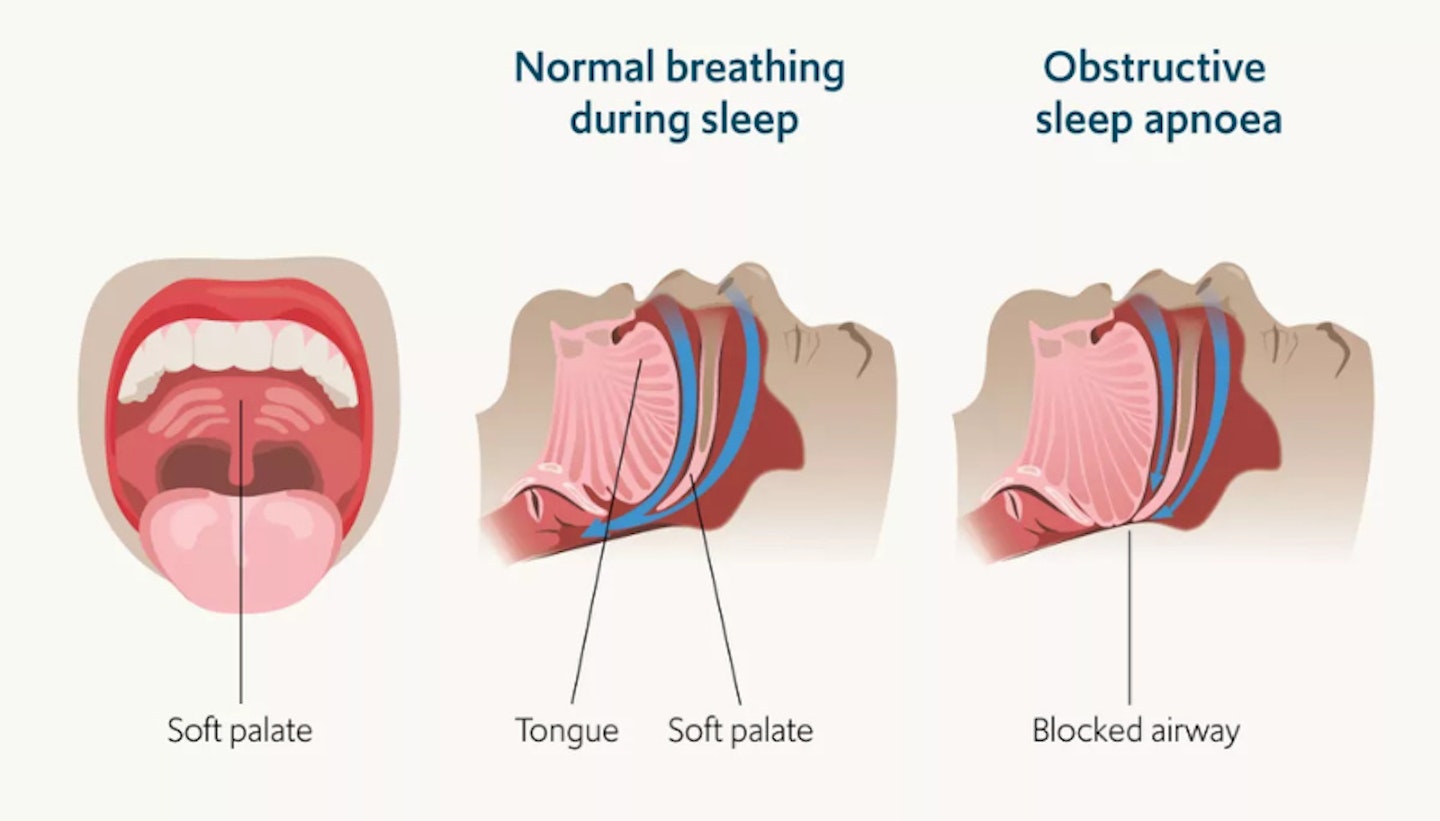
Medically Reviewed by: Daniel Tweedie
We all know a good night's sleep is vital for children (as well as parents!) but sleep is also one of the many things babies and young children may struggle with. While most children will get into a good sleeping pattern, sometimes regular disturbed sleep can be a more serious thing like sleep apnoea and can cause distress for newborns and children.
Sleep apnoea is a condition typically associated with adults but can also affect children. Although it is relatively uncommon in children, it still affects around 1-3% of children.
What is sleep apnoea?
Sleep apnoea (pronounced app-nee-uh) is a medical term used when someone briefly stops breathing involuntarily or pauses their breath during sleep. There are two types of sleep apnoea: the most common is obstructive (OSA) and central apnoea (CSA).
Central apnoea can improve for young children and premature babies as their respiratory centre grows. According to The Great Ormond Street Hospital for Children NHS Foundation Trust CSA "occurs when the brain does not send the correct signals to the muscles that control breathing.
They go on to explain that central sleep apnoea differs from obstructive sleep apnoea. The latter is caused due to an "obstruction of the airway in the nose, throat or upper airway." It happens when your child is asleep and there is not enough air reaching the lungs.
Daniel Tweedie is a children's ENT specialist based in London, one of a small number in the UK. He says that: "obstructive sleep apnoea is far more common an issue than central sleep apnoea. Most of the time, problematic snoring and obstructive sleep apnoea occur from toddler age onwards. There are some less common occurrences in babies, less so than in the older age group."
Obstructive sleep apnoea can look different in children than it does in adults. Adults may have mood swings and daytime sleepiness, but children are more likely to have behaviour issues, for example being hyperactive, have trouble concentrating, as well as poor weight gain and, it would not be surprising if they also felt sleepy during the day.
What causes sleep apnoea?
According to registered charity Hope2Sleep, one of the reasons children may have obstructive sleep apnoea is enlarged tonsils or adenoids. These larger than normal organs can take up more space in the back of the throat and can block a child's airway during sleep. Obstructive sleep apnoea may also be caused by certain birth defects like Down syndrome or cerebral palsy, being overweight or when a large tongue falls back and blocks the airway during sleep.
For babies it could be caused if they were premature or have low birth weight but this does not mean that every premature baby will develop apnoea.

Symptoms of sleep apnoea in children
As a first port of call, parents may turn to baby breathing monitorsto detect their child's breathing for their own reassurance. NHS Specialist Paediatric Respiratory Sleep Clinic, Sheffield Children's Hospital say that one of the first things you may notice is that your child's snoring will be much louder. Other symptoms to look out for include:
-
Pauses in breathing
-
Restless sleep
-
Snorting, gasping, coughing or choking
-
Mouth breathing
-
Unusual head positioning that may help to open the airway better
-
Nighttime sweating
-
Sleep walking or night terrors
Can kids grow out of sleep apnoea?
It all sounds very scary but the good news is that children can grow out of sleep apnoea. This will depend on the type of sleep apnoea they have and how severe it is. As children grow, their throat enlarges, and their tonsils or adenoids shrink. If not, your GP may recommend using a continuous positive airway pressure machine (CPAP) that can help with breathing or in some cases removing the tonsils.
Daniel Tweedie has performed numerous surgeries on children to help with the condition. "We have some fantastic innovative ways to treat tonsils and adenoids, which are the main issue in young children, with very low complication rates and excellent recovery. The methods are very simple and effective, and will typically allow complete resolution of symptoms."
How to naturally treat sleep apnoea in kids
Unfortunately there's no miracle cure for children's sleep apnoea but most kids do grow out of it. Other tips include keeping them away from allergens like pollen that can block airways, ensuring they're on a healthy diet, that they exercise regularly and elevating the head of their bed or pillow may improve sleep quality.
How to get a child tested for sleep apnoea?
The first thing to do is to make an appointment with your GP. They can talk to you about your concerns, as well as your child's health and sleeping patterns. They may refer you to a specialist sleep clinic for a range of tests.
About the expert
Daniel Tweedie is an NHS and private Ear, Nose and Throat ENT Consultant Surgeon in London. He is a children's ENT specialist, one of a small number in the UK, and many of his patients have very complex medical needs. He is also the proud father of four young children.
Keya Modessa, is our Senior Digital Writer and brings over a decade of experience from the digital realm to Mother&Baby. As a mother of two, Keya understands the joys and challenges of modern parenthood and uses her own experience, to give practical advice. Keya has worked across national publications including glossy women's mags, Food and Travel, and more recently as digital lead for Muddy Stilettos.
